Who people searched for—and what they searched—in 2014
Indian Prime Minister Narendra Modi is leading TIME’s 2014 Person of the Year poll, but he’s got nothing on Russian President Vladimir Putin when it comes to an important symbol of cachet in the Internet age: Google searches.
Google provided TIME with exclusive data on five of the top trending people or topics on the 2014 TIME Person of the Year poll: Ebola, the Ice Bucket Challenge, Ferguson, Vladimir Putin and Dilma Rousseff. The data compares search volume in 2014 to search volume in 2013 and highlights related search terms that contributed to spikes in interest on Google.
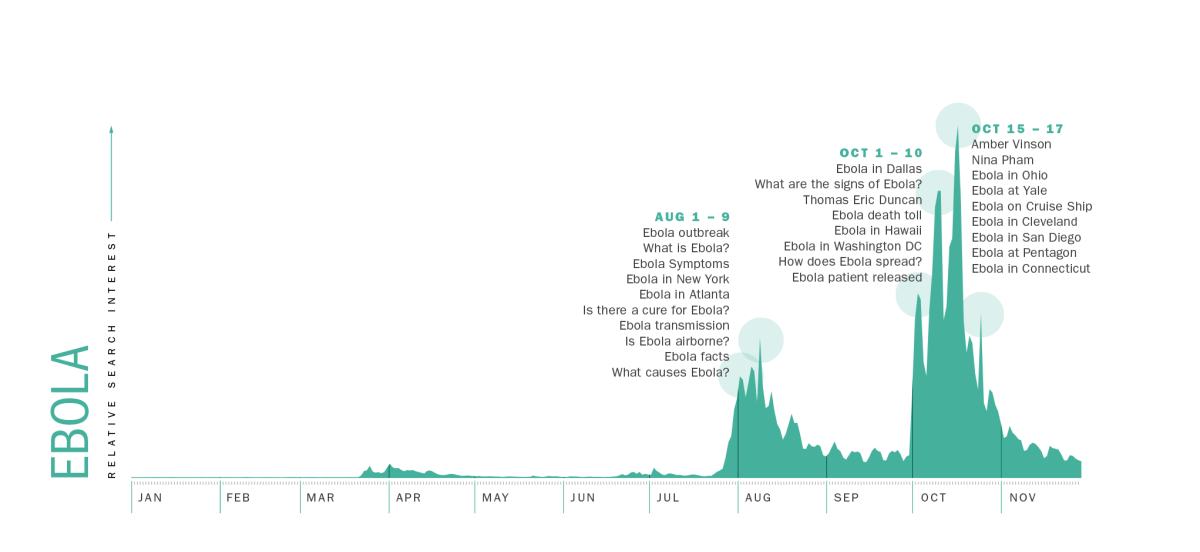
1. It took the Ebola outbreak in West Africa in March this year to bring the 30-year-old virus back to the collective global consciousness. Search spikes occurred in mid-August around the time when Doctors Without Borders called the situation in Liberia “catastrophic,” but it really earned search ubiquity on Oct. 16, when American nurse Nina Pham was flown to a hospital in Bethesda for treatment, and on Oct. 24, the day after a doctor in New York City was diagnosed with the disease. On Sept. 30, the day the Centers for Disease Control and Prevention confirmed the first Ebola case diagnosed in the United States, there were more than three times as many searches for Ebola compared to the day before. Ebola doctors and nurses are currently in fifth place in the poll with 4.5% of the vote.
![]()
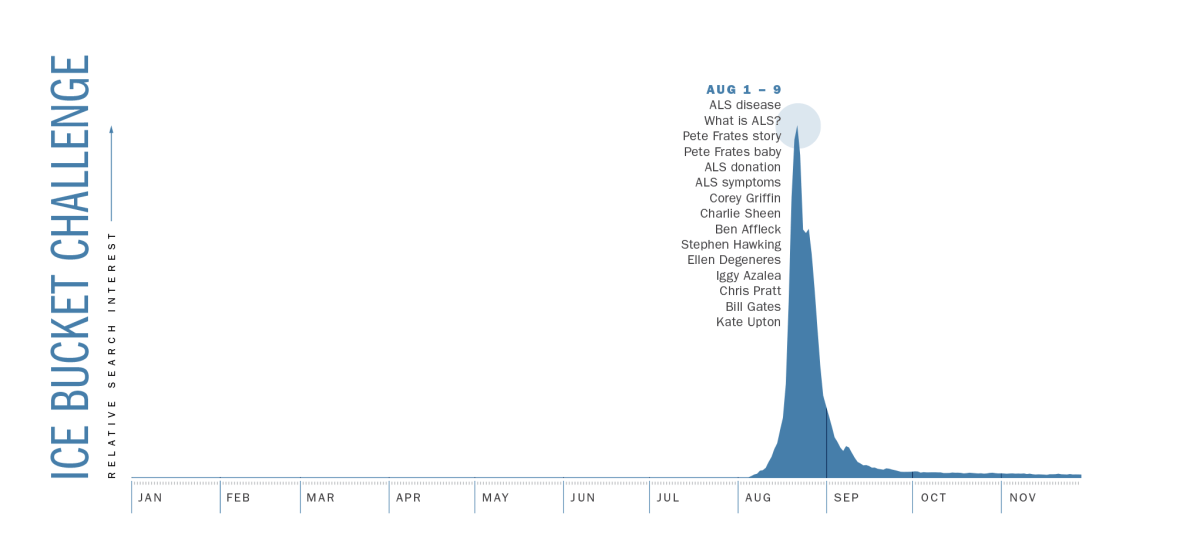
2. The Ice Bucket Challenge may have changed the way fundraising is done by turning a campaign to combat Amyotrophic lateral sclerosis (ALS), also known as Lou Gehrig’s Disease, into a viral sensation. The first notable Google searches for the phenomenon began around Aug. 5, and soon a trickle became a flood (of ice water), with searches peaking on Aug. 21. There were more than 10 times as many searches for Ice Bucket Challenge on Aug. 21 compared to days in the week prior. Pete Frates and Pat Quinn, credited with popularizing the challenge, are currently ranked No. 20 in the poll results with 1.4% of the vote.
![]()
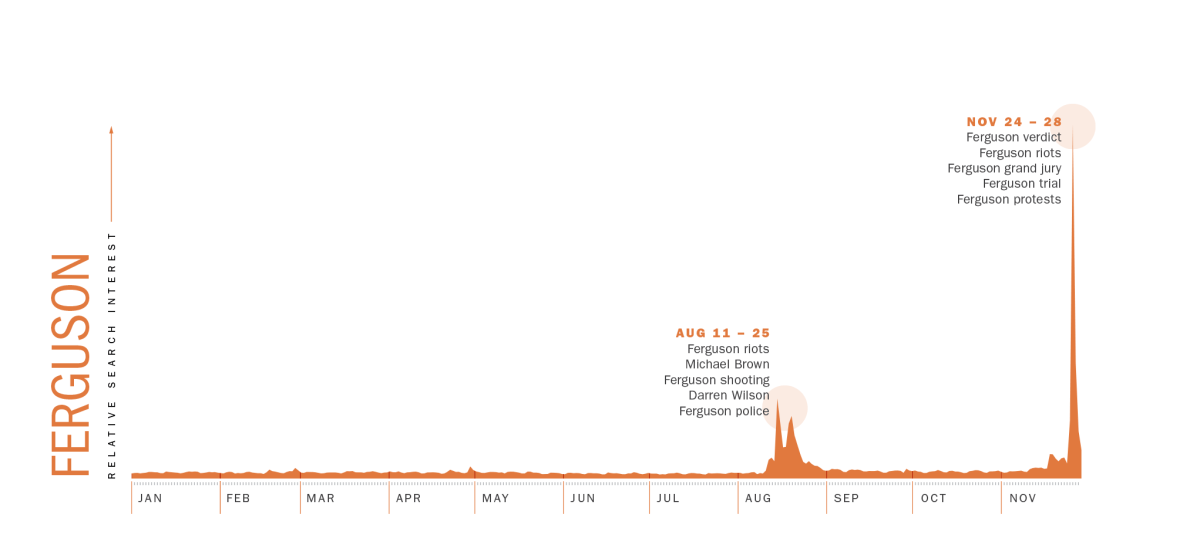
3. Ferguson was a flashpoint this year for racial tensions across the United States, and quickly became a byword for police brutality and frustrations with the justice system. The fatal police shooting of Michael Brown on a Missouri street in mid-August garnered some searches, but it wasn’t until the grand jury verdict on Nov. 24 that searches for Ferguson boomed: The day after the grand jury decision not to indict officer Darren Wilson, Google searches for Ferguson grew more than 17 times compared to days in the previous weeks. The Ferguson protestors are currently in second place in the poll with 9.7% of the vote.
![]()
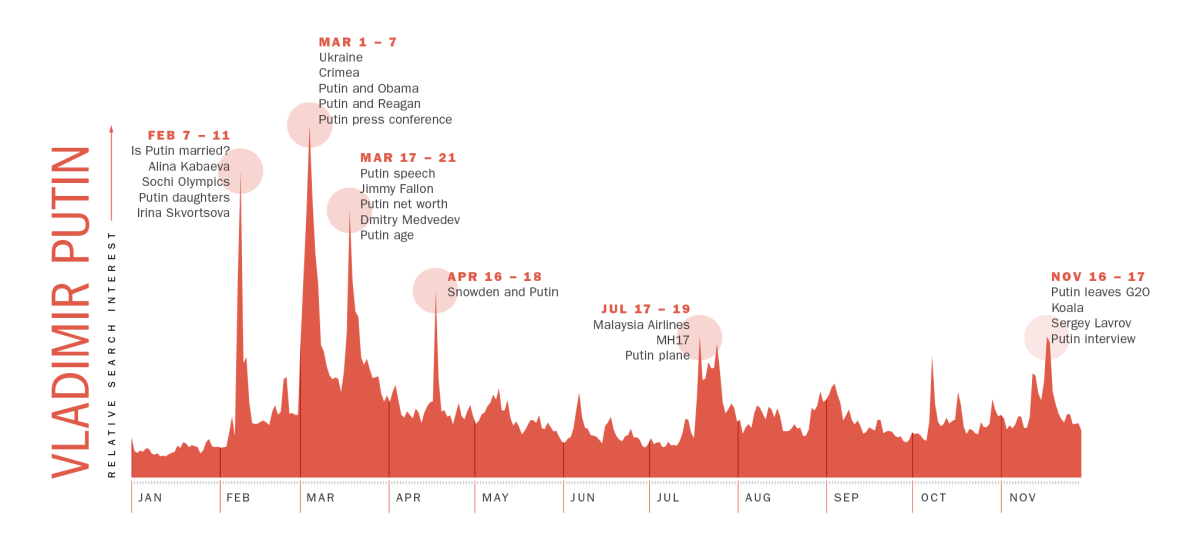
4. Vladimir Putin has been making headlines all year amid repeated Russian incursions in Ukraine, and searches for the Kremlin leader spiked at particularly tense moments: In early March, during Russia’s initial involvement in Crimea, in mid July, when Russian-backed insurgents in Ukraine downed a Malaysia Airlines jet, and in November, when Putin left the G20 early after being ostracized by the group’s members. In the four days after pro-Russian gunmen seized key buildings in the capital of Crimea, searches for Putin increased more than five times. Putin is currently in sixth place in the poll with 4.1% of the vote.
![]()
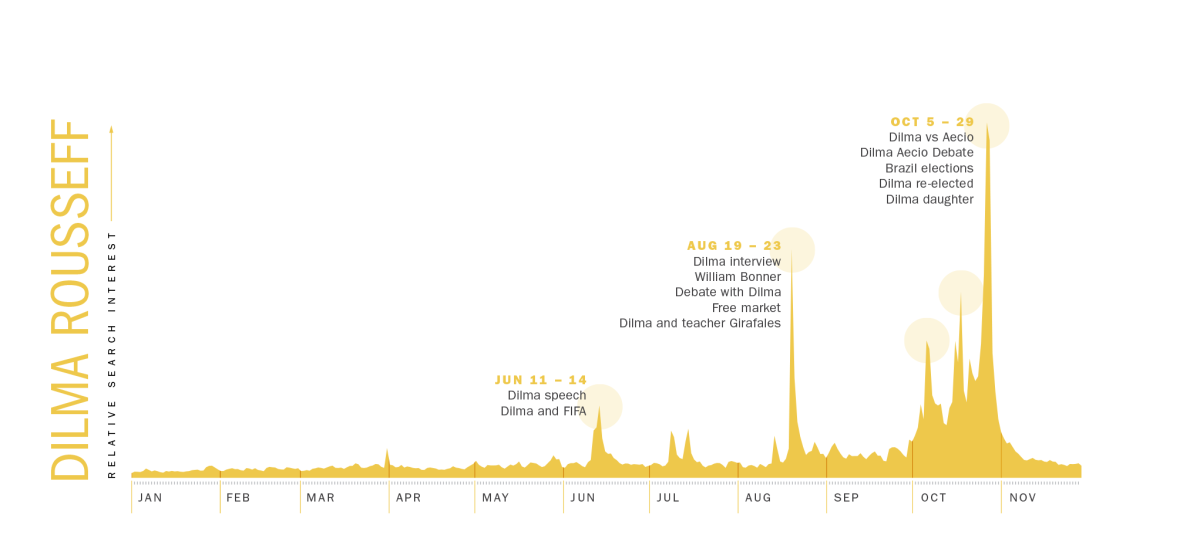
5. Dilma Rousseff, the 38th president of Brazil, was reelected in a narrow victory on Oct. 26. She is hugely popular on Google, perhaps because Internet-savvy Brazil is the fifth-largest country in the world with some 204 million inhabitants. Searches for the Brazilian president increased more than three times in the three days before she was reelected on Oct. 26. Rousseff is currently in 29th place in the poll with 1% of the vote.
![]() Since 1927, TIME has named a person who, for better or worse has most influenced, the news and our lives in the past year.
Since 1927, TIME has named a person who, for better or worse has most influenced, the news and our lives in the past year.
The Person of the Year is selected by TIME’s editors, but readers are asked to weigh in by commenting on any TIME Facebook post that includes #TIMEPOY, tweeting your vote using #TIMEPOY, or by heading over to TIME.com’s Person of the Year voting hub, where Pinnion’s technology is recording, visualizing and analyzing results as they are received. Votes from Twitter, Facebook and TIME.com’s voting hub are pooled together to create the totals displayed on the site. You can see the results of the poll and vote on your choice for person of the year here.
Google Data Methodology: Numbers represent search interest relative to the highest point on the chart. If at most 10% of searches for the given region and time frame were for “Vladimir Putin,” we’d consider this 100. This doesn’t convey absolute search volume. The related searches are listed in order of search interest for the specified time period.